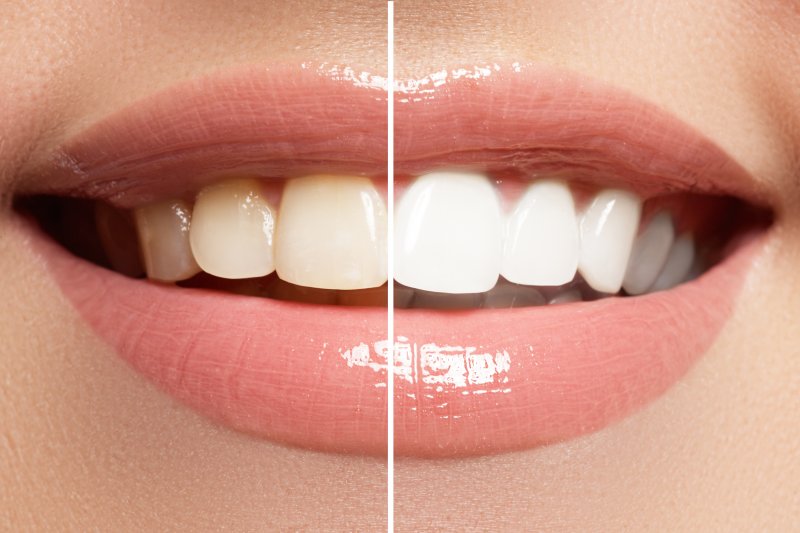
Whitening your smile comes with many great benefits. From an enhanced appearance to boosted confidence, you’ll notice a significant difference in how you look and feel after blasting away stains and embracing healthier, brighter teeth. Unfortunately, there is the misconception that you’ll be unable to comfortably consume anything hot or cold as a result. If you want a whiter smile that doesn’t leave you with teeth sensitivity, a dentist shares what you can do to minimize the risk.
Does Teeth Whitening Cause Sensitivity?
The idea of teeth sensitivity can be a deterrent for anyone thinking about whitening their smile. Fortunately, most individuals either experience mild issues or none at all when attempting to eat or drink anything hot or cold after undergoing professional treatment. Much of how you react to the bleaching agent is dependent upon your individual smile. If you have gum recession or tender soft tissues, you may be more vulnerable to the potential for sensitivity.
It is also not uncommon to experience some minor discomfort if you are new to professional whitening treatment. Fortunately, this is only temporary and will only last a short time.
How Your Dentist Can Help
If you’re worried that your teeth whitening will cause sensitivity, your dentist can be your greatest ally. Not only can they provide you with recommendations for different kinds of toothpaste that contain desensitizing agents and are designed to minimize sensitivity, but they can also offer additional tips and suggestions that will make it less likely that you’ll experience discomfort in the days and weeks after your teeth whitening treatment. Some of these may include:
- Avoid foods and drinks that are extremely hot or cold immediately following your treatment. If possible, consume items that are room temperature.
- When using store-bought items, opt for those that do not contain high peroxide levels and recommend shorter applications.
- Place Vaseline or Vitamin E oil over the areas with gum recession before placing your bleach trays should they become sensitive while bleaching. This will block the bleach from touching these areas and prevent sensitivity.
- Discuss your oral health issues and concerns with your dentist before moving forward with professional treatment. After thorough discussions, they can determine if teeth whitening is right for you. If necessary, you may be recommended for an alternative cosmetic solution that can give you beautiful, whiter results much like teeth whitening (i.e., veneers, cosmetic bonding).
Professional teeth whitening is a great way to make a great first impression. By discussing your concerns with your dentist, using the right products, and adhering to the tips provided, you can safeguard your teeth from sensitivity and embrace a newer, more vibrant smile.
About the Author
Dr. Joanne Bancroft has been practicing dentistry since 2003. Earning her dental degree from the State University of Buffalo School of Dental Medicine in 2002, she attended a General Practice Residency at the University of Colorado School of Dental Medicine. Focusing much of her efforts on cosmetic dentistry, she and her team at J.B. Dental are equipped to provide patients with safe and effective ways to improve their appearance and boost their confidence. Contact us at (720) 458-6561 to find out how we can help you brighten your smile!
